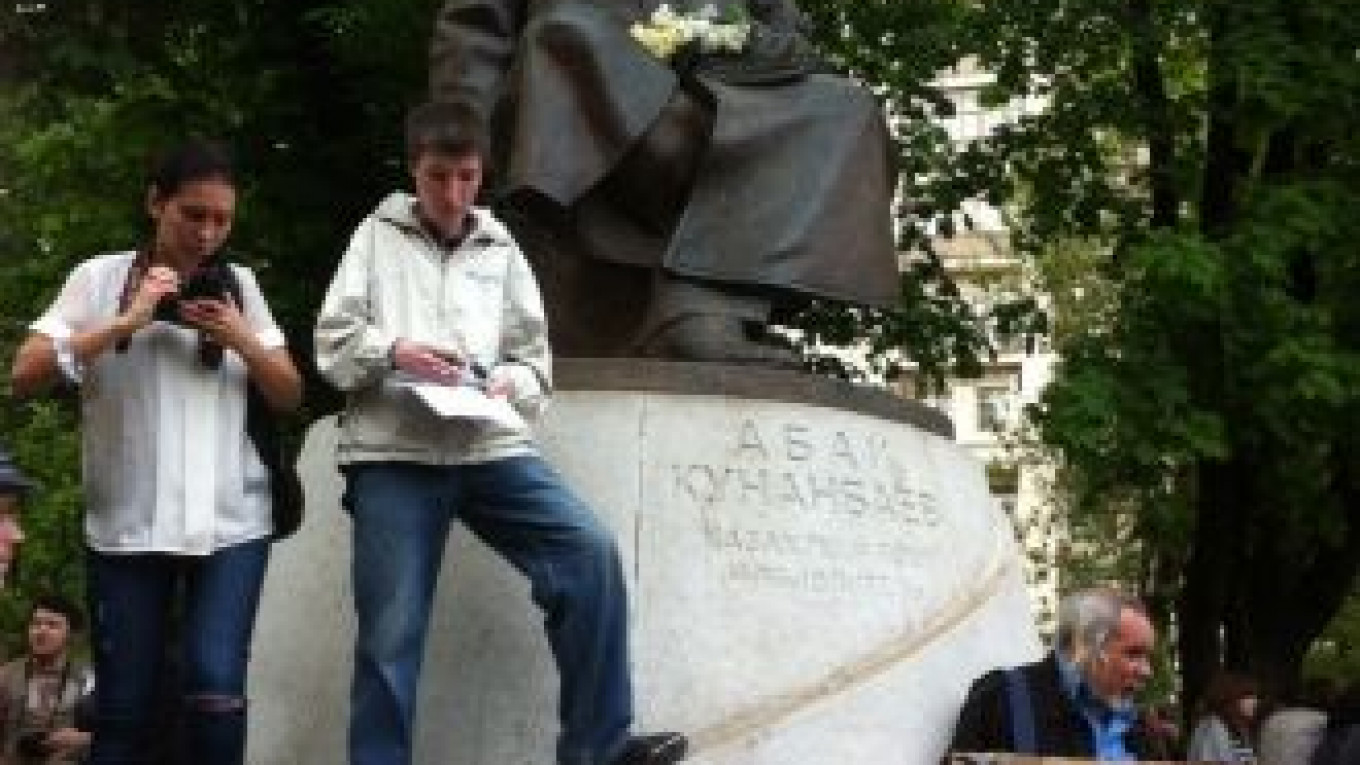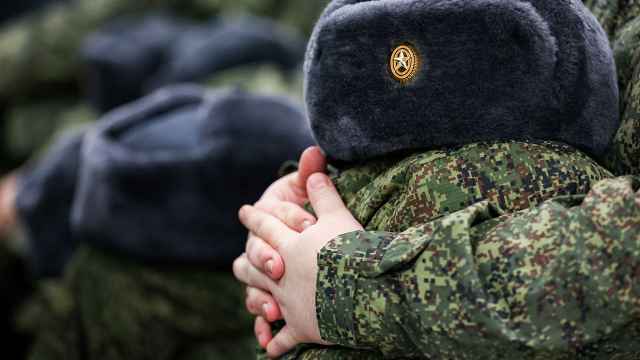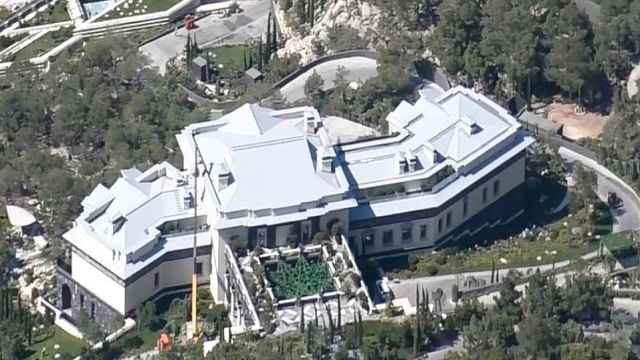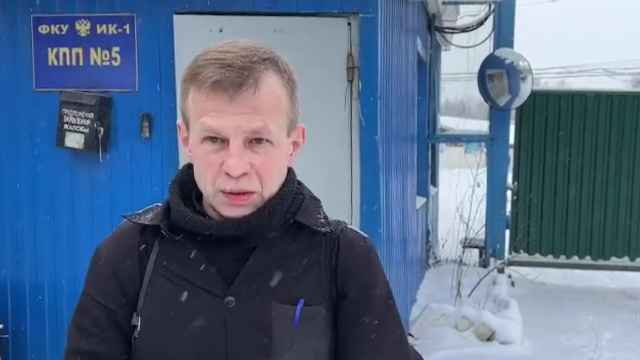The ordinary Muscovite would find it hard to say who Abai Qunanbayuli is and where his statue can be found in the city.
But after the opposition occupied the area around his statue at Chistiye Prudy this week, Qunanbayuli has become the symbol of a round-the-clock protest there.
Qunanbayuli, whose name reads in the Russian spelling as Kunanbayev, was "a great Kazakh poet," according to a brief inscription on the monument. After the police finally allowed the opposition activists to settle around the monument, he also has practically become a new opposition leader — especially given that two other leaders, anti-corruption blogger Alexei Navalny and Left Front head Sergei Udaltsov, have been jailed for 15 days.
Qunanbayuli guided protesters to a rendezvous at Chistiye Prudy on Tuesday, the third day of the protests.
"Are going to #chistiyeprudy to the monument of an obscure Kazakh poet," Navalny wrote on Twitter on Monday. But he later had to apologize when he found out that Qunanbayuli was not only a 19th-century poet, but also a prominent fighter for basic freedoms.
Within the next three days, #OccupyAbai has become a top hashtag on Russian Twitter, lending Qunanbayuli's name to the movement opposed to a third presidential term for Vladimir Putin.
Qunanbayuli, who is relatively unknown in Russia, is a respected figure in Kazakhstan, where his name is carried by universities, cities and streets. He is remembered as a cultural reformer, philosopher and composer.
Dozhd television recently showed footage from a documentary titled "The Searching Soul of Abai" that calls him a prominent defender of the Kazakh people against dictatorship and exploitation.
A spokeswoman with the Kazakh Embassy in Moscow, reached by phone, said she wasn't authorized to comment for this story.
Interestingly, it was Putin who unveiled the monument in 2006 together with Kazakh President Nursultan Nazarbayev as a symbol of the friendship between the two states. The location was chosen because the embassy is situated across the street.
The sculptor who created the statue of Qunanbayuli voiced disquiet at his work becoming a symbol of protest on Friday.
“I think there is a certain speculation on the level of ancient cultural relations. There is a play on the level of spirituality. Encroachments on the friendly relations between Russia and Kazakhstan,” Marat Ainekov told on Russian News Service Radio. “I wouldn't want the statue to be a symbol of confrontation. I'd rather it were more positive,” he said.
A Message from The Moscow Times:
Dear readers,
We are facing unprecedented challenges. Russia's Prosecutor General's Office has designated The Moscow Times as an "undesirable" organization, criminalizing our work and putting our staff at risk of prosecution. This follows our earlier unjust labeling as a "foreign agent."
These actions are direct attempts to silence independent journalism in Russia. The authorities claim our work "discredits the decisions of the Russian leadership." We see things differently: we strive to provide accurate, unbiased reporting on Russia.
We, the journalists of The Moscow Times, refuse to be silenced. But to continue our work, we need your help.
Your support, no matter how small, makes a world of difference. If you can, please support us monthly starting from just $2. It's quick to set up, and every contribution makes a significant impact.
By supporting The Moscow Times, you're defending open, independent journalism in the face of repression. Thank you for standing with us.
Remind me later.






